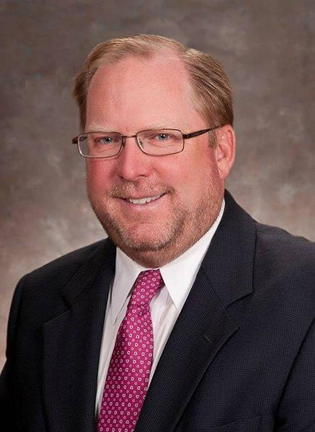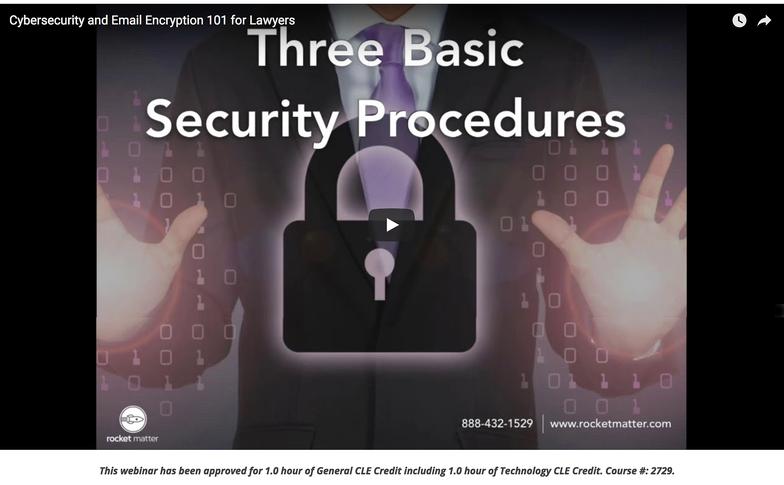Legal BlackBook
TM
CyberInsecurity
JUNE 2018
By David Hechler
A
If you are interested in contributing thought leadership or other content to this platform
please contact Patrick Duff, Marketing Director at 937.219.6600
FLORIDA ADOPTED MANDATORY CLEs IN TECH.
WHERE ARE THE FOLLOWERS?
Most states agree that lawyers must be competent in this area,
but training is optional.
Cybersecurity and data privacy are viewed as the most important areas of instruction.
John Stewart
few years ago, the Florida State Bar decided that it was time to affirm that lawyers have an
obligation to demonstrate competence in understanding and using technology. It was an opinion that the American Bar Association and many states had already adopted, so there was nothing startling about this. But Florida did not stop there. It took the next step: It added a requirement that at least three of the 33 hours of CLE training that its lawyers are required to complete within three years be instruction on technology.
The wonder is that Florida was the first state to do this. And 18 months later, no other state has yet joined it (though two seem close).
The funny thing is that the Florida lawyers who pushed this through didn’t set out to lead the pack. They were just trying to catch up. But once they did the required homework, that next step seemed obvious. And not because they were technophiles.
John Stewart was the lawyer selected by the Florida Bar’s Board of Governors to chair the technology subcommittee that studied the issue. But he would never call himself a techie. “I think I was tapped because I was the youngest member of the Board of Governors, not because I was necessarily the most technologically savvy,” said Stewart, who is now 48.
But he did have impressive organizational skills. A partner at Rossway Swan Tierney Barry Lacey & Oliver in Vero Beach, Stewart had chaired committees on topics ranging from communications to alternative dispute resolution to gender bias and diversity. And it didn’t take the technology committee too long to see the importance of their work. “It was a slow build, but then there was sort of an awakening,” Stewart said.
When the Florida group got started in 2013, the ABA’s Commission on Ethics 20/20 had already weighed in a year earlier. “Technology has irrevocably changed and continues to alter the practice of law in fundamental ways,” the commission wrote. “Lawyers must understand technology in order to provide clients with the competent and cost-effective services that they expect and deserve.”
In Florida, they could see its influence in the proliferation of small firms. About three quarters of the Bar’s 105,000 members practiced in firms with 10 lawyers or fewer; 65 percent in firms of five or fewer. Many were delivering services “almost exclusively online,” Stewart said.
About a third of the country’s state bar associations had already adopted language similar to the ABA’s, Stewart recalled. It seemed time for Florida to wake up and smell the coffee. But if they were going to change the language on competence, “we better offer them education, too,” Stewart said, explaining the committee’s reasoning. “We didn’t want to force that obligation on them and then not give them the resources to meet it.”
Within its first year, Stewart’s committee was convinced that some sort of lawyer education was necessary. But the members wrestled with the details. Should it be mandatory, “or more “aspirational”? How many hours should they recommend? And should they prescribe subjects, or leave that open-ended?
They decided that if they were going to recommend the change in language, they ought to back it with mandatory training. They proposed boosting the 30 hours of CLE courses to 36 over three years, with the extra six devoted to tech.
The Board of Governors did not embrace their proposal with unanimously open arms. Put any group of lawyers in a room, Stewart said, and there’s always dissent. One board member solicited feedback from the Bar members he represents, and they rejected the idea. “Younger lawyers say, ‘We already know this,’” the board member told The Florida Bar News. “The older lawyers say, ‘I hire people to do it.’”
After kicking the plan around, the board voted in July 2015 to cut the proposed six hours in half and adopt the new language, along with three hours of mandatory education in tech. The proposal was then sent to the state Supreme Court, which made it official in September 2016. The rules took effect the following January.
Since then, Stewart said, he hasn’t heard any complaints. And lawyers have been voting with their feet. Many more signed up for technology CLEs than had been anticipated. The publicity probably helped, Stewart acknowledged, but he suspects that lawyers have begun to “understand the value to their practices.”
Stewart added that cybersecurity and data privacy are probably the most important areas of instruction. “One of the key core values that distinguishes the legal profession from others,” he said, “is that we are obligated by law or by rule to keep client confidences.” And when lawyers fail, he noted, “it’s almost always unintentional. Which is why this CLE has become so valuable.”
So, if Florida finds it so valuable, and nearly every other state has affirmed the importance of technology in the profession, why have all the other states remained on the sidelines?
Stewart has no answer—except to note that the state bars of North Carolina and Pennsylvania have now proposed that their own supreme courts adopt mandatory CLE training in tech.
Does he think that this is the beginning of a trend? Has momentum finally shifted? He doesn’t have a clue, Stewart said. He has no insight into the workings of other states. But he feels good about the progress Florida has made. And in the process, he’s learned a lot. “I’ve certainly grown to appreciate technology,” he said.
WHAT THE NUMBERS SAY



